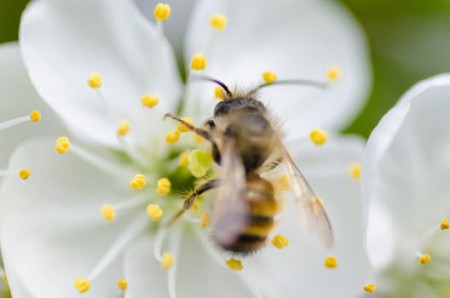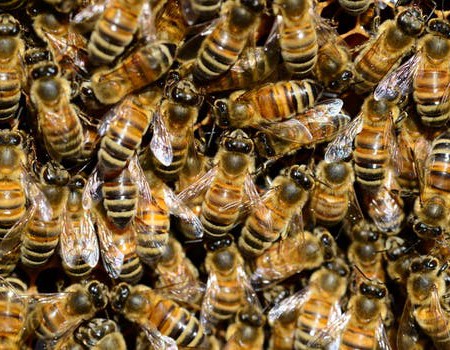
With flowers being visited by many different types of animal, it can be a challenge to work out which of these visitors are good pollinators for particular plant species.
Researchers from Edinburgh Napier University, the University of St Andrews and the University of Bristol looked at the ability of flower-visiting insects to move pollen onto flowers in a diverse community of plants on Mount Carmel in Israel.
By measuring the amount of pollen different species of insects deposited onto flowers and combining this with how often they visited flowers, they produced a score for the performance of each type of insect as a pollinator for a wide variety of plant species.
The findings, published here in the Nature Publishing Group journal Scientific Reports, show that nearly all bees studied could be excellent pollinators for the plants they collected pollen and nectar from.
Dr Gavin Ballantyne, of Edinburgh Napier University, said: “Honeybees, sweat bees and different types of solitary bees were the most effective visitors.

“Bee species come in a huge range of different shapes and sizes and you’ll often see a morphological match between their size and tongue length and the shape of the flowers that they visit and successfully deposit pollen onto. We also found that the hovering bee flies, known as bombyliids, were the most effective non-bee flower visitors.”
The findings help ecologists to understand which plants benefit from which insects and identify which species might be especially vulnerable to change in complex environments like Mount Carmel, where there are dozens of plant species flowering at any one time, being visited by hundreds of species of bees and other insects.